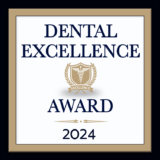
Why Dental Sedation?
Dental sedation is also known as sleep dentistry! Fortunately, it is a special technique that helps patients feel more calm and relaxed during a typical appointment or advanced surgery. I’m sure we could all benefit from a little dental sedation at one point or another.
At the end of the day, there are a variety of common reasons that cause dental anxiety in many people. Fear of pain seems to be a top reason! No one wants to be in pain, period. Embarrassment, fear of the unknown, loss of control, past trauma, sensory overload, trust issues, and fear of needles are more reasons, and the list goes on! Whenever we feel comfortable, secure, and happy somewhere, we are encouraged to return! Likewise, reducing apprehension motivates patients to return on a regular basis regarding dental care. This prevents serious issues down the road. So, are there different types of dental sedation? Yes, and it’s time to examine them further!
Nitrous oxide or laughing gas, oral sedation, and IV sedation are the three types of sedation we will discover more about within this article.
Nitrous Oxide
Who doesn’t love a little laughing gas; especially when tense? Luckily, laughing gas is a sedative that is considered short acting. Patients inhale laughing gas or nitrous oxide through a mask. Color and odor are of no concern since nitrous oxide is a colorless and odorless gas. It slows down the nervous system, subsequently, helping patients to feel more relaxed. Nitrous oxide is usually utilized for minor procedures because it is fast-acting and wears off hastily! The patient is given pure oxygen after the procedure to help clean the nitrous oxide out of their system. And that’s that!
Oral Sedation
A dentist offering sedation is a little different because it involves a pill for deeper tranquility. It is recommended for people with moderate to severe anxiety, gag reflexes, and those that have trouble controlling movement. When do patients normally take the pill and what does it do? The pill is typically consumed an hour before the appointment. It slows down the brain helping the patient to feel more calm and sleepy. The pill allows you to stay awake during your appointment if you so choose, but you might not remember everything that takes place. Oral sedation is a great choice for longer procedures too!
IV Sedation
Now if you are seeking out a nearly sleep-like state, IV sedation is the way to go! It works well if you have extreme anxiety or need a complex procedure done. IV stands for “intravenous” sedation, or a type of anesthesia. So, how is it administered? IV sedation directly enters the patient’s bloodstream through an IV line. Vital signs are monitored throughout the procedure and it is considered safe! How about we consider some of the key benefits of sedation?
Key Benefits of Dental Sedation
Sedation provides physical comfort and assists patients in feeling increasingly calm and relaxed. Not only does it enhance comfort, but a calm patient allows dentists to work more efficiently! This is because the patient is less likely to move or tense up during procedures. Dentists are able to focus on the procedure without needing to readjust or accommodate patient discomfort repeatedly. And because of increased comfort and relaxation, patients are more inclined to complete necessary treatments. All of these factors improve long-term health!
Is Dental Sedation Right For You?
Don’t fret if you have anxiety issues or a low pain threshold! You have plenty of sedation options to choose from and time to examine your medical history. This will help you to make the best decision for your appointment. If you aren’t concerned about experiencing anxiety and actually have a high pain threshold, choosing a sedation option might be ideal if you have a future lengthy procedure. Generally, sedation is considered safe under professional supervision. Each case is unique as the treatment is dependent on age, medical conditions, and the type of sedation. Let’s wrap it up folks!
Relax and Smile: Explore Your Sedation Options Today!
As you can see, dental sedation provides a comfortable, anxiety-free experience. You can look forward to feeling calm and relaxed during your appointments, knowing you have sedation options to choose from. Today, we explored three types of sedation—laughing gas, oral sedation, and IV sedation—and how they can help manage dental anxiety related to pain, needles, embarrassment, and more. By investing in sedation, you not only make your dentist’s work more efficient but also ensure you stay on top of your dental health with regular appointments. Don’t let dental anxiety hold you back—contact our office today to schedule a consultation and discover the sedation option that’s right for you. Your comfort is our top priority!




